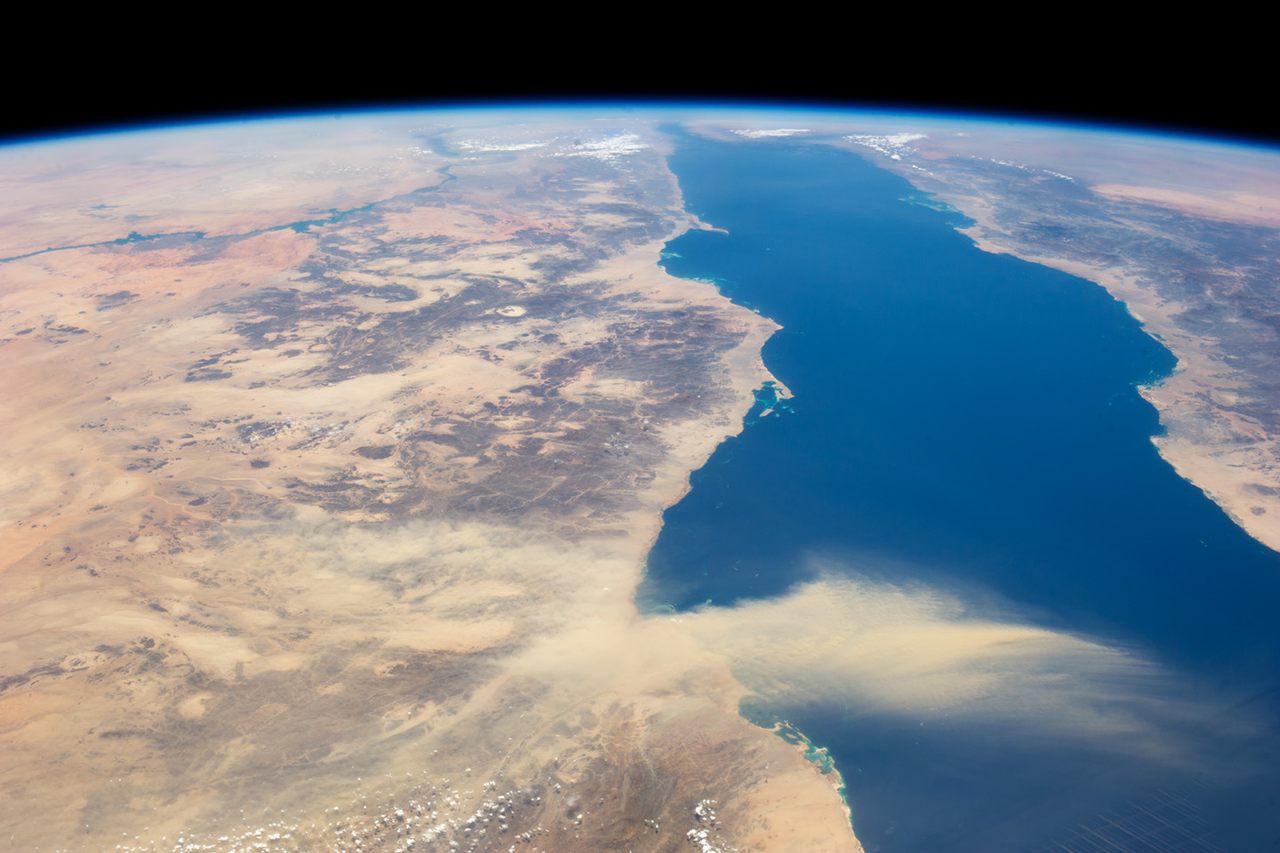Event Information
The Middle East Policy Council held its 116th Capitol Hill Conference on Thursday, July 25, 2024, on the topic “Conflict in the Red Sea: The Role of Great Power Actors.” The event took place in the Capitol Visitors Center of the U.S. Congress.
Mr. Khalid A. Alwan, a member of the Board of Directors of the Middle East Policy Council, introduced the event, and Ms. Bassima Alghussein, Executive Director of the Middle East Policy Council, was the moderator. The panelists were: Mr. Bradley Bowman, Senior Director of the Center on Military and Political Power, Foundation for Defense of Democracies; Mr Jeffrey Wood, Economic Security Analyst, Systems Planning and Analysis; and Ms. Nada Al-Hajjri, President, Yemen Information Center.
Mr. Bowman began the discussion by asserting that Red Sea tensions are only getting worse. He noted that June witnessed a peak in the number of Houthi attacks since March, continuing the disruption to international shipping and commerce. He outlined the involvement of great powers by discussing Russia’s role in threatening to arm the group in order to combat U.S. naval vessels that bring weapons to Ukrainian forces. Mr. Bowman continued with the importance of cutting off smuggling routes to the Houthis from Iran while highlighting the power vacuum that could be filled by Chinese influence in the region, which could include trade that immunizes Western sanctions on Iran. He concluded his analysis by reiterating that the Middle East is a battleground for great-power competition, whether Washington and American decision makers want it to be or not.
Mr. Wood provided economic analysis of the region’s great-power competition through the lens of China’s Belt & Road Initiative. He clarified that China’s involvement regarding security in the region has been minimal, and has focused mainly on developing its trade capacities. The role of mediator has been preferred by Beijing over traditional security involvement, he noted, an attempt seen most prominently in their efforts on the normalization deal between Iran and Saudi Arabia in 2023. He stated that China will continue to look for other routes, such as the Cape of Good Hope, while leaving the conflict management in the Red Sea to Washington, as Beijing is ill-equipped to act as the primary security guarantor of the region.
Ms. Al-Hajjri focused her analysis on the effects that the Red Sea conflict and great-power competition have had on the livelihoods of Yemen’s citizens. She emphasized that conflict has compromised quality education significantly, alongside an increase in structural, mental, and physical violence taking its toll on the Yemeni population. Ms. Al-Hajjri emphasized that Yemen’s current humanitarian situation has only worsened and continues to be at further risk. She urged policymakers to view Yemen beyond just its humanitarian needs, however, as it deprives its citizens of long-term solutions and access to tools needed to address the root causes of instability. She highlighted the agency of Yemeni leaders and civil society, and their initiatives to bolster industries in clean energy and media. Great powers have a role to play in Yemen, asserted Ms. Al-Hajjri, through their ability to de-escalate and place diplomacy at the core of their policies, aiding progress toward sustainable solutions. She finalized her analysis through a reminder that a resolution in the Red Sea is not feasible without a stable Yemen.
